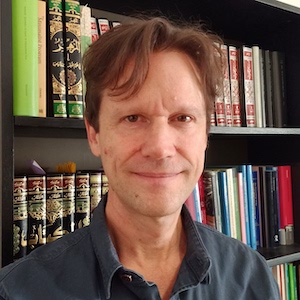 Dr. Peter Hallman
Dr. Peter HallmanAustrian Research Institute for
Artificial Intelligence
Freyung 6/6
1010 Vienna, Austria
Phone: +43 (1) 5336112
Email: peter.hallman@ofai.at
Who I am: I am a theoretical linguist at the Austrian Institute for Artificial Intelligence (OFAI) specializing in Arabic and its dialects. View my full CV here.
What I do: Linguistics is the scientific study of human language. Most of my research deals with the syntax and semantics of Arabic. Syntax is the study of regularities in the form of sentences and semantics the study of the relation between form and meaning. The dialects of Arabic are interesting from this perspective because they are many in number but relatively similar, so that the differences among them can be compared ‘microscopically’ in the context of a relatively uniform background. Arabic is therefore very well suited to the study of linguistic ‘microvariation’, which sheds light on what parts of language are contingent on what other parts and how language change transpires over time. My most recent research seeks to apply methods of semantic reconstruction to Arabic making use of interpretational divergences between the dialects. Of interest, too, are areas of persistent similarity, that is, why some areas of grammar are prone to change and others not. The dialects of Arabic represent a very fertile empirical terrain for examining these issues.